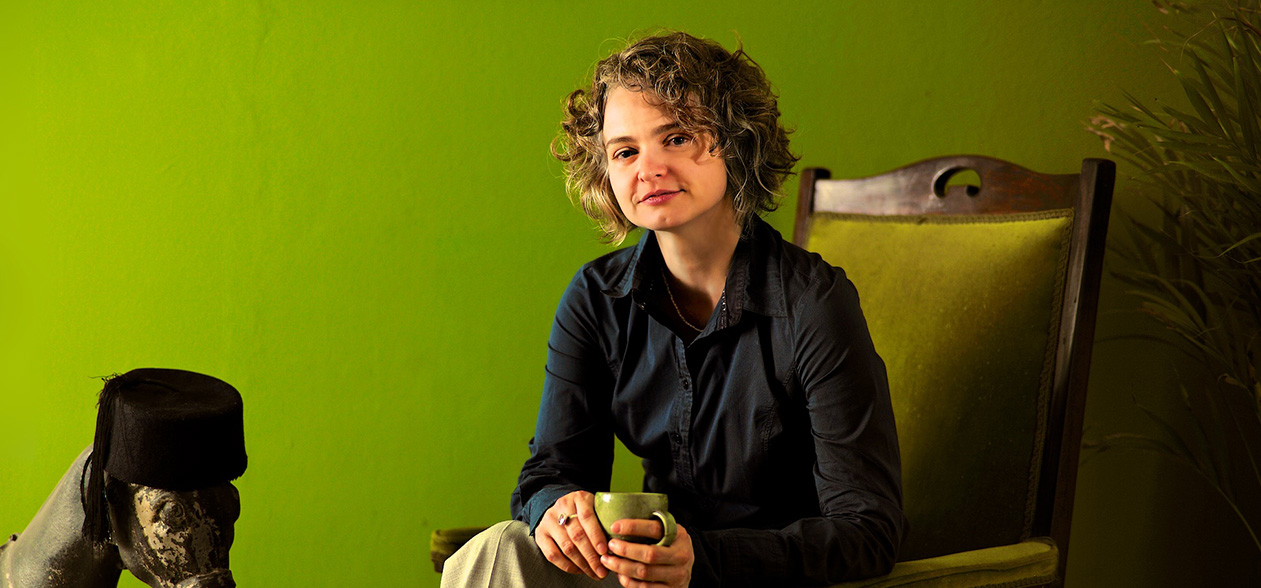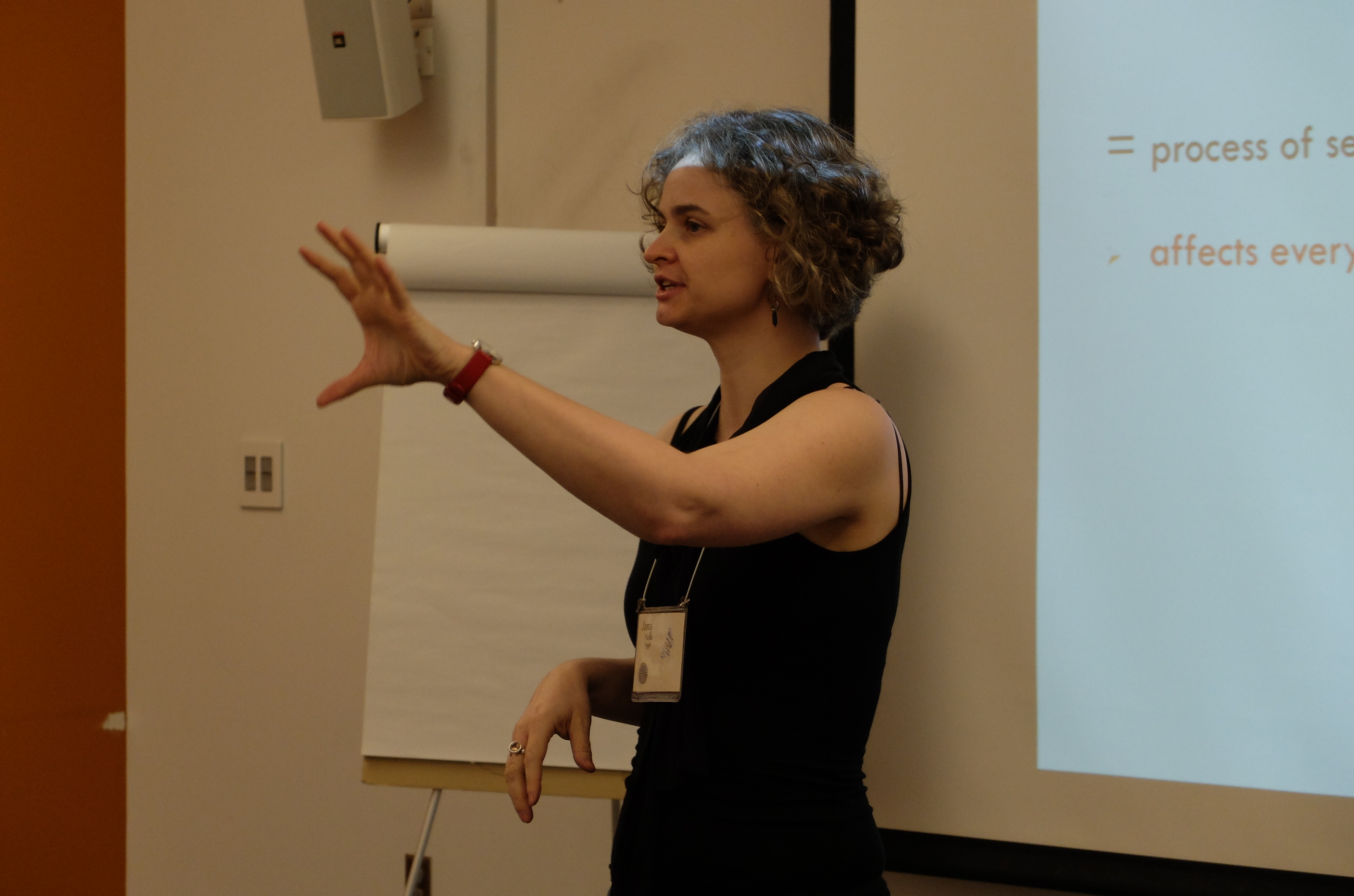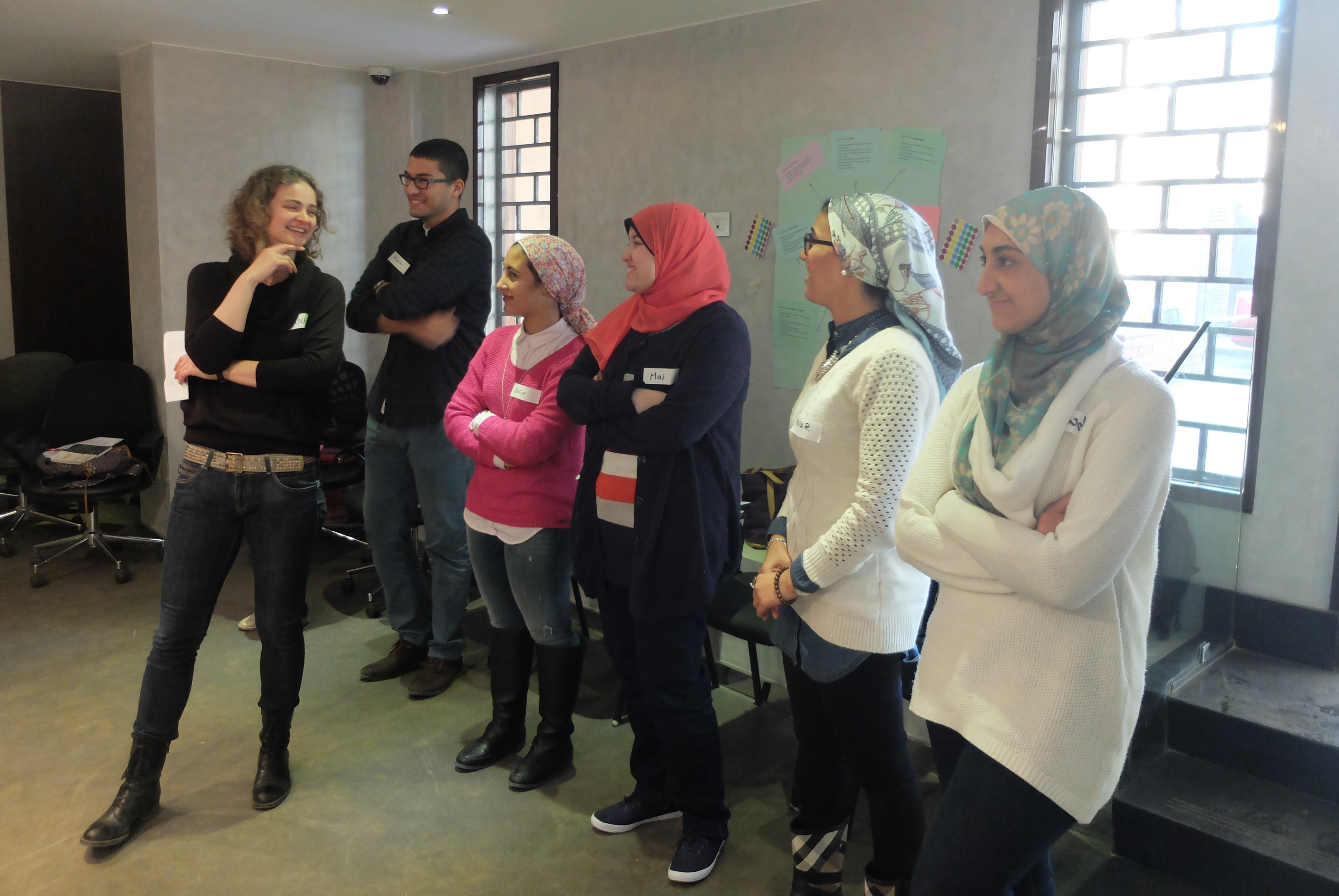
Culturally learned communication is not universal. In Arab countries, a yes answer can mean disagreement, says intercultural consultant Jana Hollá
She studied ethnology at UCM and has been working as an expert in intercultural communication for years. In the interview Jana Hollá talks about how she got from Trnava to Cairo, why no one will say no to you in the Middle East, but also what prevents us from understanding people from different cultures.
You have been working as an intercultural consultant, facilitator and trainer since 2004. This is a relatively unknown position in Slovakia. What does it mean in practice?
I am involved in adult education in the field of intercultural communication. This field originated in the United States around the 1960s and naturally bridges anthropology, sociology, psychology, inclusion and business. In my case, most of my work involves working with people who work in multicultural teams. Everyone has their own value set and cultural experience. They have to learn to communicate and work together. Simply put, I see culture as the air we breathe. On a subconscious level, it is all around us and greatly influences how we communicate, think, and overall perceive the world.
Diversity, or otherness in Slovak, meaning the differences and distinctions that make each person unique, is not something to be overcome. It is an opportunity. But to be able to work with it, we need a certain amount of patience, openness and often the willingness to see beyond what is at first sight different or incomprehensible. My role is to help clients in this process. Not necessarily to give them what they think they want, but what they really need.
So, if I understand correctly, your primary focus is on bringing work teams together so that different cultures from different countries around the world can work together.
Yes, but to a large extent it depends on the type of client. In a corporate environment, it's all about setting up a teamwork setup. For example, last time I provided consulting and online training for managers of one of the largest IT companies in the world. It's based in California, and although its internal teams are made up of people from different cultures, the company remains strongly oriented toward American values.
It was important to explain to them that things are done differently in Europe or the Middle East. Not worse, just different than in America. What I often find is that, while management recognizes these rational differences, in practice they find it difficult to change decision-making processes or ways of communicating that they have no direct and lived experience with. It is therefore a long-term process.
Although you've already outlined it in part, what type of companies do you work for most often?
I don't know if most often, but I can tell you who I like to work with the most. It's non-profit organizations and educational institutions. Working with them gives me more room to work more thoroughly with them, and I often feel more interested in the substance of things. I've worked in academia for over 12 years, so linking education with practical work is the most fulfilling for me.
I also work with medium-sized companies and corporates. I like diversity. I don't specialize in just one topic. On the contrary, I enjoy learning something new every time. For example, recently we have been working on the topic of inclusion in a European institution, other times it is interfaith dialogue.
In addition to training, I am also involved in facilitation, i.e. guiding teams through difficult processes or changes. In such situations, I am not a content expert, but an expert on the process itself. I create a space in which people feel safe, can communicate openly and find solutions together. It's a job that requires a lot of intuition, empathy and a feel for group dynamics, and that's what I enjoy most about it.
Can you think of a specific example of cross-cultural differences that you have had to deal with?
Of course. A few years ago I worked for Siemens, who were building a power station next to their new capital in Egypt. As is the way with multinationals, they employed local workers, but the middle and senior management were international. The problem arose when the project started to be significantly delayed. The managers were unable to communicate effectively with the Egyptian teams and did not understand why the work was not moving according to plan. They simply felt that they didn't care about the project, were irresponsible and slow. Simply put, a typical clash of Western and Middle Eastern culture.

To put it in more expressive terms, was it an established cultural stereotype of hard-working Germans and lazy Arabs?
Exactly. In fact, the problem was not laziness or lack of interest, but a lack of understanding of cultural differences and a different work ethic. For example, a different approach to time, hierarchy or motivation. In Arab countries, personal relationships play a very important role. If I want something to be done tomorrow, I have to have very well built personal relationships with my colleagues and superiors there. People there work best for those they respect, not for a faceless company. In Western culture, in the workplace, we do the work first and then worry about interpersonal relationships. There it is the other way around.
Another fundamental problem tends to be communication. In Europe, if you ask your subordinate if he or she will prepare an important report for you by tomorrow, the answer may be yes, no or something in between. You may have a lot of work to do, but you will do everything you can to get it. In Arab countries they will always say yes, which in practice can mean a real yes, you will try, but also "no way, that's out of the question."
In Egypt, if you ask a policeman on the street where to go, he will always send you in some direction, even though he may have absolutely no idea where your destination is (laughs). It doesn't make sense within our cultural conditioning. Why doesn't the policeman just tell me that he doesn't know where it is? Therefore, we can get the feeling that these people are just lying on a regular basis. In the Arab world, however, there is what is known as the principle of saving face. They want to accommodate you so much that they would rather make something up than make you feel that they cannot accommodate you.
During the aforementioned training for Siemens, we went over how to better understand and manage these differences. We focused not only on theory, but mainly on practical skills - how to build trust, how to ask questions in a way that makes the answer clear, and how to adapt to the local environment without giving up your own identity.
What is the main reason for these major misunderstandings? A simple misunderstanding that the behaviour of people in different parts of the world can be so different?
It is primarily a misunderstanding that our culturally learned communication is not universal. We feel that when we say something, the other party will automatically understand it exactly as we meant it. This is a mistake. From a young age we are unconsciously shaped by the culture we live in. By how we behave, how we communicate, what is right and what is wrong. And once we're adults, we feel like that's the only way to function. In our cultural context, maybe it is. But that doesn't automatically mean that we can navigate in a completely different one. On the contrary. In a new environment, we have to become children again - to learn to be curious, to perceive and to adapt to the new environment.
"When I started teaching at a university in Egypt, one of the first things that struck me culturally was the perception of time. Students were regularly late."
We mentioned Egypt several times in the interview. You have been living and working there for many years. What has been the most culturally shocking to you personally?
When I started teaching at a university in Egypt, one of the first things that struck me culturally was the perception of time. Students were regularly late. Not the academic 15 minutes we are used to here, but quietly half an hour or more. Without apology. For them, it's just normal.
I later observed this attitude in work meetings or in ordinary interpersonal situations. In our company it is common that when we are late, we write a message or call. In Egypt, the other party is expected to wait. Being on the road in their understanding means that one is practically already there and there is no need to deal with it any further (laughs).
Even more interesting is the situation when they meet an acquaintance or a relative on the way. Then the plan simply changes - they go for a coffee, have a chat and the business meeting is either cancelled or significantly postponed. In their culture, personal contact is much more important than a schedule.
I understand misunderstandings in completely different cultures. But are significant cultural differences also visible in work teams made up of people within Europe, for example?
Of course, and we don't have to go far for an example at all. When I was doing my PhD in Prague, I was convinced that there are no big differences between Slovaks and Czechs, because we used to be one country. On the surface it looks like that, but when you dig deeper, you find that we have a different approach to rules, laws and work ethic.
When a new rule is introduced in Slovakia, I have the feeling that most people simply follow it, even though they may not agree with it. In the Czech Republic, I think there is more room for discussion, bending the rules or simply ignoring what others are doing.
I realized this contrast based on a specific situation. In Slovakia, a stranger was prepared to scold me for wanting to borrow a bicycle without an ID card, because the law says to carry one at all times. In the Czech Republic, I don't think that would have happened. They obviously wouldn't have lent me a bike either, but I could have got away with it without commenting on my civic duties.
Similar differences exist between regions within a country. Things are handled differently in Orava, differently in Záhorie or Bratislava. It is precisely the fact that we do not expect such differences that can cause the aforementioned major misunderstandings.
You are one of the first graduates of ethnology at the Faculty of Arts, UCM. Are you still able to draw on the knowledge that your studies have given you in your practice?
It certainly does. I've always been interested in otherness, and studying ethnology has given me a solid foundation for how to see it in different cultural contexts. What I value most is the developed capacity for participant observation, in which you become part of the group you are studying not only from the outside but also from the inside. I still use it a lot in my work with people.
How does a young student actually get from Trnava to Egypt?
I have always been fascinated by the Middle East, especially the ancient civilizations and later the Islamic culture. So it was a lifelong dream of mine, which for a while seemed unrealistic. I grew up during the communist era.
I had already focused on Egypt during my master's studies at UCM, but I first got there as a tourist. I was immediately captivated by the country and its people. Later, during my PhD studies at Charles University in Prague, I had the opportunity to go to Cairo for a research stay and I just stayed there. In fact, my dissertation supervisor at the time often told me that if I was doing research on a culture, why shouldn't I live there? And he was right. Egypt appealed to me not only humanly and culturally, but also professionally.

